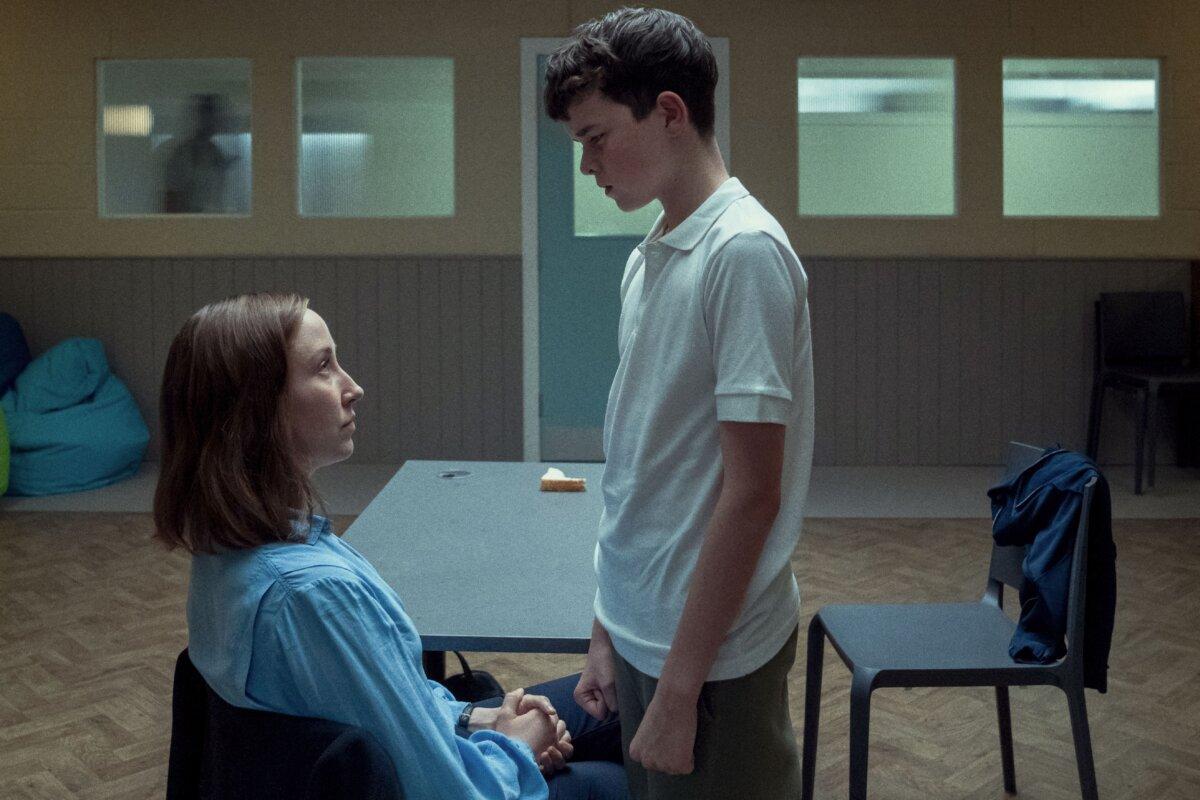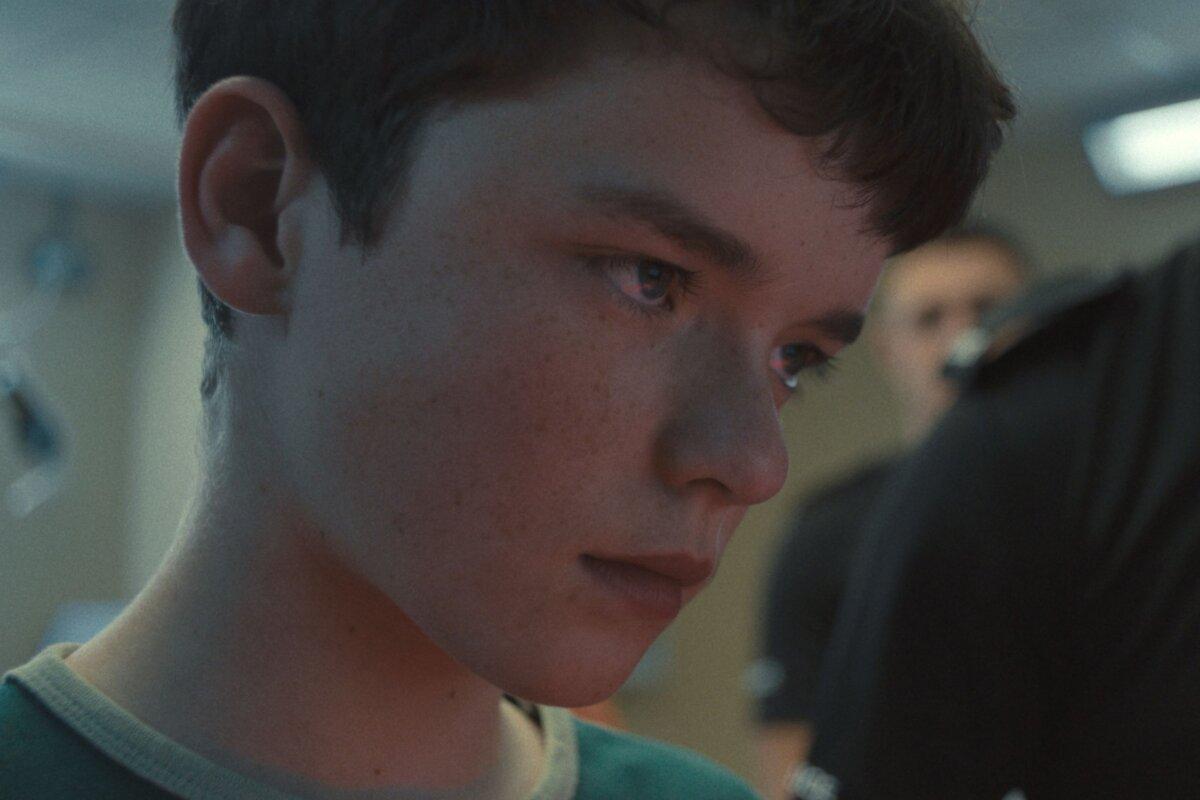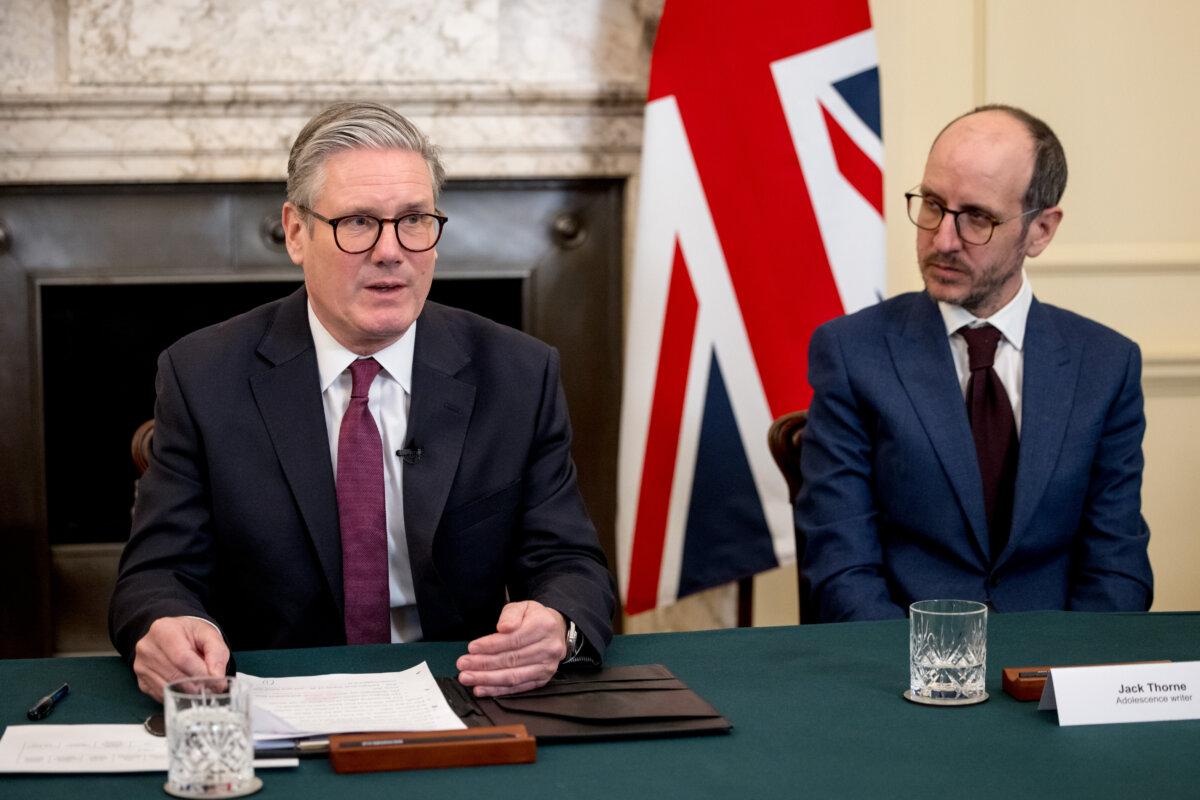Professionals sign letter protesting plans, backed by the prime minister, to show knife murder series to pupils, with concerns raised over content and message.
Opposition to the British government’s support for screening the Netflix drama “Adolescence” in schools has grown, with more than 1,800 people, including many professionals and parents, signing a letter urging the government not to use the series as a teaching resource.
Following widespread positive reviews and calls in Parliament for it to be shown to all teenagers, Netflix announced it would make the series available free of charge in secondary schools.
The drama, which has already clocked up more than 125 million views, tells the story of 13-year-old Jamie, who stabs a female schoolmate to death after apparently becoming radicalised online by the so-called “manosphere” and “incel” (involuntary celibate) culture, with influencer Andrew Tate name-checked in the script.
‘Irony and Hypocrisy’
Shrive, a doctoral researcher, told The Epoch Times, “There’s an irony and a hypocrisy here, because what we’ve got in the series ‘Adolescence’ is the presentation of teachers just sticking films on … instead of teaching, in a very passive so-called learning environment. And then what this suggestion is doing is exactly mimicking that.”
She questioned whether schools are the right environment to show such a series to impressionable youngsters, with many teachers not being suitably qualified to offer appropriate support.
“There’s a risk there of causing further confusion, or actually potential radicalisation of children who are watching it, who would perhaps sympathise with the main character, especially because he’s seen often in quite a sympathetic light,” she said, referring to victim Katie being given no voice in the drama, but merely a suggestion that she bullied Jamie.
“This isn’t a psycho-educational resource. It hasn’t been created like that. It’s been created as a very important and excellent piece of drama … it’s good for parents to be aware of, but it’s certainly not anything that we should be showing children en-masse.”
Some commentators have questioned the motive for treating the drama as though it is a documentary when it is not based on actual events, with some experts saying there is no strong evidence of widespread “incel” culture indoctrinating teenage boys and that treating the series as social commentary risks causing a moral panic and demonising masculinity as “toxic.”
Shrive said she would not call it a moral panic herself, as she believes there is sufficient evidence of young males becoming radicalised online through misogynistic content. But rather than pointing to influencers as posing the most serious risk, she sees the ready accessibility of extreme and violent porn as a more insidious threat to developing minds.
“If you look at the website Pornhub, over 90 percent of the videos contain some kind of violence towards women … we know that over 50 percent of the users are children, and similarly, over 50 percent of 10-year-olds have watched porn,” she said, referring t0 2016 research commissioned by the NSPCC.
Shrive added that while it is accepted that peer-on-peer stabbings among children are increasing, research shows that “shock tactics” have little impact when it comes to cultural change, and hard-hitting films can traumatise more sensitive children and abuse victims.
“I remember when I was at school, there were all these films shown on the dangers of CSE [child sexual exploitation] online … it was based on genuine concerns, definitely, because of all the chatrooms that had sprung up, and there was grooming. But I remember it was actually quite frightening, and it seemed to retraumatise some children who had experienced abuse.”

(L-R) Erin Doherty as Briony Ariston, Owen Cooper as Jamie Miller in “Adolescence.” Courtesy of Ben Blackall/Netflix © 2024
‘Normalising’ the ‘Rare’
Molly Kingsley, of the campaign group Us For Them, believes the call from the government for the series to be shown in schools is an “outrageous” overreach by the state.
“I’m not sure what we are trying to do to children in making them watch this at school—are we trying to educate them, scare them, or shame them?” Kingsley told The Epoch Times.
“It puts the onus for these awful situations—a fictional situation in this case, let’s not forget—onto children, when adults should be protecting them. It also risks normalising something that is rare; it sends a message that this is happening across our schools, when for most children, this is simply not the case.”
Her view that the events depicted are rare is supported by research from Prevent, the UK’s primary counter-extremism programme for young people, which shows it received just nine referrals for suspected “incel” type indoctrination in 2023–24, representing just 2 percent of the cases taken up by Channel, the interventionist arm of the organisation.
Kingsley agreed with Shrive that internet use and screen addiction in children are real and complex problems which should be addressed through a more “holistic” approach than through showing them the most extreme outcome through a 15-rated tale of murder.
“For many of us, the most shocking thing about ‘Adolescence,’ and actually the bit that probably did ring true, was just watching this cohort of the zombie generation that smartphones have created … All these kids, walking across the school, heads down in phones, not looking up, like this whole tech subculture that’s been created,” Kingsley said.

Owen Cooper as Jamie Miller in “Adolescence.” Courtesy of Netflix © 2024
The Family Education Trust (FET) which campaigns for social responsibility with a focus on family values, expressed its opposition to the series being shown in schools, pointing out that it has been erroneously referred to as a documentary by Prime Minister Sir Keir Starmer and others on more than one occasion.
“While ‘Adolescence’ is a powerful drama with some exceptionally good acting, we have serious concerns with the seemingly knee-jerk reaction to it, resulting in the Prime Minister stating that he wants every school pupil from the age of 11 upwards to watch it.
“Referring to children under 16 as ‘involuntary celibate’ assumes that it’s normal for 13-year-olds to be engaging in sexual activity. There is no mention of the age of consent or that it’s illegal for children to have sex because they cannot consent.”
The FET pointed out that children develop at different rates and many 13-year-olds haven’t hit puberty.
“Most 13-year-olds are not having sex, and many won’t even have experienced sexual attraction. Describing them as ‘involuntary celibate’ because they haven’t had sex risks alarming children into believing there is something wrong with them if they aren’t sexually active.”
‘Demonising’ White, Working-Class Boys
The FET said it is particularly concerned about the potential “demonisation” of the white, working-class male.
“The show portrays white working-class boys as if they are all potential rapists and murderers, particularly if they spend a lot of time online. This is not based on evidence.
“Whilst there is a problem with knife crime in the UK, the victims and perpetrators of knife crime are disproportionately young Black men in urban areas. According to the [Office for National Statistics], a third of knife crime takes place in London and is linked to gang activity,” the statement added.

(L-R) Ashley Walters as Detective Inspector Bascombe, Faye Marsay as Detective Sergeant Frank, in “Adolescence.” Courtesy of Ben Blackall/Netflix © 2024
The FET said that statistics show that having an absent father is strongly correlated to rates of criminality in young males, and this is especially prevalent in the black community.
“The filmmakers chose to portray a white boy from a stable family with married parents, when the reality is that 76 percent of young men in prison in England and Wales had an absent father and more than a third of youth inmates are Black. It should be possible to discuss these issues without being accused of being racist.”
Backing plans to show the series in schools, the prime minister said he watched the show with his 16-year-old son and 14-year-old daughter, calling it “a very good drama to watch. This violence carried out by young men, influenced by what they see online, is a real problem. It’s abhorrent and we have to tackle it.”
Starmer did note, however, that there was not a “silver bullet response” or “some policy lever that can be pulled” to address the complex problems explored by the drama, which was viewed more than 66 million times in its first two weeks, with its release coinciding with the Online Safety Act coming into force.
Writers and co-creators Jack Thorne and Stephen Graham have said that the show is not based on actual events and that it is not intended to make any comment about race, but rather about misogyny and male violence towards girls and women.
Graham, who also starred in the drama as Jamie’s father, told BBC Radio Times magazine that the idea for the story came partly from the stabbing of a young girl by a boy in Liverpool (the murder of Ava White, 12, by an unnamed 14-year-old boy), and by the stabbing of a young girl in London at a bus stop (the murder of Elianne Andam, 14, by 17-year-old Hassan Sentamu).
Graham also referred to the stabbing of trans-identified teenager Brianna Grey, who was murdered by a girl and a boy, Scarlett Jenkinson and Eddie Ratcliffe, both 17 at the time and said to be consumed by online violence, as inspiration for the fictional drama.
Conservative Party leader Kemi Badenoch told the BBC that she hadn’t watched the drama, and “probably won’t now,” adding: “In the same way that I don’t need to watch ‘Casualty’ to understand what is going on in the NHS, I don’t need to watch a specific Netflix drama to understand what’s going on. It’s a fictional series, it is not a documentary.”
Funding Ties to Government
IntoFilm is facilitating the Netflix screening in schools, while Tender is producing educational leaflets to work alongside the series. Both Tender and IntoFilm are funded partly by the government, through the Department for Culture, Media and Sport, which also gives funding to the company that produced “Adolescence,” Warp Films.
IntoFilm is supported by the British Film Institute, and has previously promoted free LGBT content for schools, including a documentary, “1 Year,” about a schoolgirl who medically transitions into a transgender-identifying male.

British Prime Minister Sir Keir Starmer holds a roundtable meeting with “Adolescence” writer Jack Thorne (R) at Number 10 Downing Street in London on March 31, 2025. Jack Taylor/Getty Images
Home Secretary Yvette Cooper announced a review into misogyny based on counter-terrorism models one month after Labour won the general election, with the government consistently stating its commitment to enforce and strengthen the Online Safety Act passed by the Conservatives.
The government is yet to announce whether it will implement a planned shake-up of the sex and relationships curriculum for schools that was drawn up by the previous Conservative administration.
Education Secretary Bridget Phillipson has indicated she will look to introduce lessons around the influence of online misogynistic content and pornography as well as consent, although details of the curriculum are yet to be announced.
But the FET is among those expressing reservations about teaching children that “masculinity” is potentially “toxic,” while the notion of “empowering” girls and women is pushed without reservation.
“For those engaged in—even on the fringe of—bullying, misogyny and violence, watching Adolescence could positively reinforce those tendencies, while sending other students off in search of the very content the series warns about.”

